Friday, May 20, 2016
Our Kind of Traitor
John le Carré hasn’t done badly in terms of his work being adapted. Unlike, say, James Ellroy who has one classic (‘L.A. Confidential’), one damn good film (‘Cop’, a fairly loose take on his early novel ‘Blood on the Moon’) and two total misfires (‘Brown’s Requiem’ and ‘The Black Dahlia’). Or Len Deighton, who has the first two Harry Palmer films (‘The Ipcress File’ and ‘Funeral in Berlin’) and the TV adaptation ‘Game, Set and Match’ to be proud of, and terrible versions of ‘Spy Story’ and ‘Only When I Larf’ (itself a particularly weak novel).
Le Carré, however, has three bona fide classic big screen treatments: ‘The Spy Who Came in from the Cold’, ‘The Constant Gardener’ and ‘Tinker Tailor Soldier Spy’, and four pitch-perfect serials for television: ‘Tinker Tailor Soldier Spy’, ‘Smiley’s People’, ‘A Perfect Spy’ and ‘The Night Manager’. Even the second division of le Carré adaptations – ‘The Looking Glass War’, ‘The Little Drummer Girl’, ‘The Tailor of Panama’, ‘A Most Wanted Man’ – are only second division because of just how damned good the top tier titles are. In fact, there’s only really Fred Schepisi’s misjudged take on ‘The Russia House’ and a couple of pedestrian adaptation of the early novels that let the side down.
‘Our Kind of Traitor’ slots solidly into this second tier, and it’s a damned shame because it could so easily have been a masterpiece. The plot – Russian mafia; money-laundering; political corruption; banking as the legitimate face of multi-billion pound criminality – is as timely as when the novel was published six years ago. The script was by Hossein Amini, a confident adapter of literary works (‘The Wings of the Dove’, ‘The Four Feathers’, ‘The Two Faces of January’). The cast is a publicist’s dream: Ewan McGregor, Stellan Skarsgård, Damian Lewis and Naomi Harris.
The problems start with the choice of director. Susanna White has notched up an impressive small screen CV, helming episodes of ‘Boardwalk Empire’, ‘Masters of Sex’ and ‘Billions’, but directing for TV and directing for film are vastly different disciplines, and White’s only other big screen outing was ‘Nanny McPhee and the Big Bang’. Not exactly a showreel for a dark, cynical espionage drama. And speaking of showreels, Anthony Dod Mantle’s cinematography is visual attention-seeking at its worst, all surface sheen and artsy fascination with reflection and distortion – which might have suited one of le Carré’s Cold War opuses but just gets in the way here. ‘Our Kind of Traitor’ is concerned with massive levels of corruption, ruthless oligarchies and the human cost of a family at risk. The film cries out for focus, for precisely rendered details, for a foregrounding of fieldcraft and an absolute exposition of what’s at stake. Instead, Dod Mantle assembles what increasingly looks like a “for your consideration” Oscar campaign.
Amini’s script finds a narrative throughline which belies the complexities of le Carré’s novel – no mean feat: there’s a reason why his books often lend themselves better to the long form of a television series – but his flair for nuance and the human element needs to be underpinned by a sense of urgency for the story to work, and neither the direction or editing provide this. Case in point: late in the game, a number of characters find themselves holed up in a safe house in the middle of nowhere; one of them makes an ill-advised decision which leads a team of assassins to their location. The resulting shoot out is filtered through the perspective of someone who’s holding a gun for the first time, hiding in a cellar, and torn between staying put or going outside, protecting his charges or determining whether those charged with protecting him are even still in the game. His cognizance of what is happening boils down to offscreen gunshots, heavily suggestive silences and occasional voices in a foreign language. The scene should be razor-wire tense; sweatily claustrophobic. Done by Hitchcock, or Argento at his best, it would be nerve-shredding; almost unbearable. Hell, Tarantino pulled this kind of thing off with aplomb in the opening section of ‘Inglourious Basterds’. In the hands of White and her two editors, it’s merely ho-hum.
Fortunately, White seems to invest more in her direction of actors. Granted, McGregor is one of those performers who does one specific thing very well – in his case, a boyish, slightly sheepish persona – but that one thing suits the character well enough. Harris takes an underwritten role and emerges with a fully rounded performance – she really is one of the best actresses around at the moment and mainstream cinema still hasn’t woken up to that fact. Lewis makes the wise decision to understate, playing his scheming spymaster as a man who has spent his entire career wearing a poker face. Even in two slightly out-of-character scenes – an impassioned plea to his governmental bosses who would rather he didn’t pursue one particular lead any further; and a deliberate taunt to a long-standing nemesis – the emotional imperative behind his machinations only barely shows. In fact, Lewis risks appearing bland in his characterisation and it’s perhaps not till the very last scene that his gamble plays off.
Skarsgård aces it as mob accountant Dima, a man whose time is running out as a new cabal of oligarchs viciously dispose of all traces of the old guard in order to present a shiny new vision of capitalist Russia for the benefit of UK investors. It’s a deliberately big, rambunctious performance, Dima stomping across the screen like a bear of a man, his body language a symphony in expressive gestures, his colloquy making poetry of the vulgar. Then, incrementally, Skarsgård reveals the cracks in the mask, the fear behind the flamboyance, the desperation to survive and to protect his family. It should be no surprise to anyone that Skarsgård is this good – but the real surprise that ‘Our Kind of Traitor’ has up its sleeve is Saskia Reeves as his long-suffering but nobly stoic wife: a nothing role on paper – indeed, virtually wordless – but one that she imbues with a humanity that is at the same time rigidly unsentimental and utterly poignant. Every time she’s on screen, it’s a searing glimpse of the masterpiece the film could have been.
Subscribe to:
Post Comments (Atom)
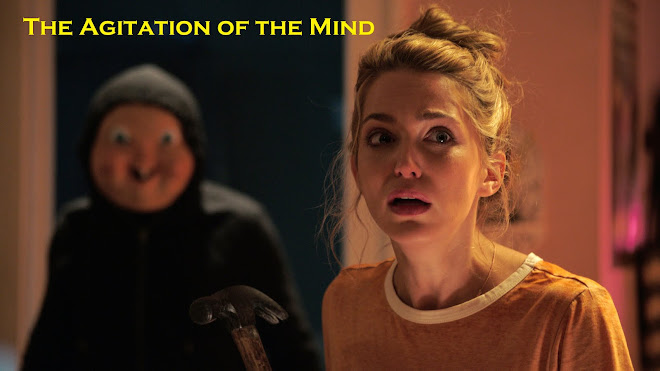

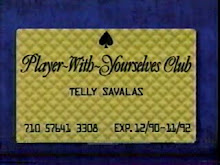
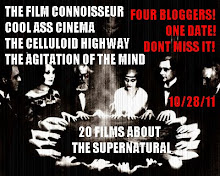
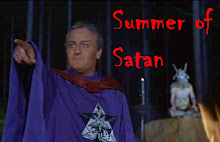
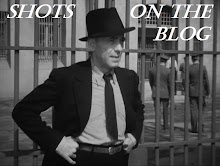











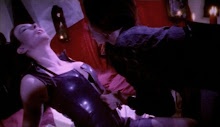





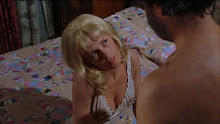









No comments:
Post a Comment